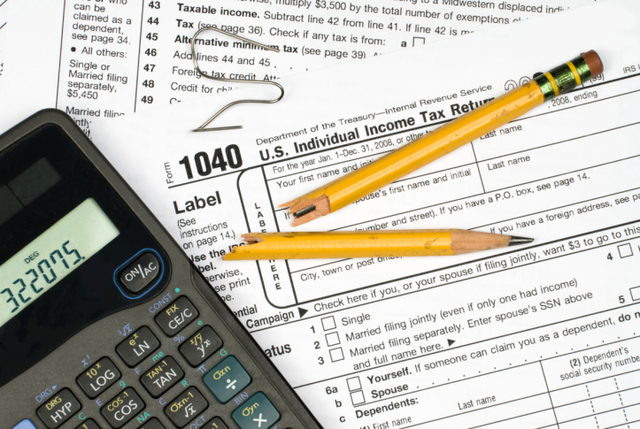Popular tax breaks expiring at end of year
WASHINGTON — When the U.S. House went home last week, so went any chance for Congress to act timely on extending 55 tax provisions expiring at the end of the year, including several that have been particularly popular in Nevada.
The tax break that has allowed Nevadans and residents of eight other states with no state income taxes to deduct sales taxes instead is off the books on Dec. 31.
Also expiring is a law that waives certain taxes for some homeowners who obtain adjustments on troubled mortgages or who complete a short sale on their homes.
Those are among dozens of “temporary” tax provisions, some dating to the 1980s, that have been routinely extended in recent years. Thus they have become known as “tax extenders.”
One deduction dating to 2002 and extended four times allows elementary school and high school teachers to write off money they pay out-of-pocket for classroom supplies. A deduction for qualified college tuition has been renewed three times.
The deduction for state and local sales taxes was resurrected in 2004, after a tax reform bill in 1986 repealed it from the tax code. An analysis by the Pew Charitable Trusts showed 23 percent of Nevada filers claimed the tax break In 2011, with the average deduction per filer of $342.
Congress habitually has allowed these deductions to expire, and has renewed them retroactively. For instance tax extenders that expired at the end of 2011 were not renewed retroactively until the end of 2012.
Key lawmakers now say they plan to follow the same course in 2014, although it is unclear how long it would take.
“It won’t happen before the first of the year but I think there will be an attempt after the first of the year to do some kind of package,” Sen. John Thune, R-S.D., a member of the Senate Finance Committee, told Congressional Quarterly last week.
“It is very important, especially for Nevada, that expiring tax provisions for clean energy, mortgage forgiveness, and others are extended,” said Sen. Harry Reid, D-Nev. “These provisions are vital to Nevada’s economy and I am hopeful Republicans will work with us to get them done.”
On sales tax deductions, purchases made in 2013 can be made part of tax returns filed in April. Taxpayers can save their receipts or use a “sales tax deduction calculator” available on the IRS.gov site.
But until Congress acts it will remain unclear whether sales tax on items bought in 2014 would be deductible.
The so-called “tax extenders” were on the back burner on Capitol Hill for much of the year as lawmakers wrestled with weightier spending and deficit issues.
Also, Sen. Max Baucus, D-Mont., and Rep. Dave Camp, R-Mich., the chairmen of Senate and House tax committees respectively, campaigned this year for a broad tax overhaul that would have examined the tax breaks, making some of them permanent while eliminating others. Holding off on individual tax breaks was seen as a way to generate pressure on business groups to support broad reform.
According to the Congressional Budget Office, extending all the tax breaks would cost more than $938 billion over 10 years, prompting some lawmakers to say they have gotten too expensive and should be reviewed.
But Camp told reporters early this month that a tax reform bill would not be introduced this year, and that the tax extenders likely would expire, at least for the time being.
Rep. Joe Heck, R-Nev., and Sen. Dean Heller, R-Nev., were among sponsors of bills to extend the tax break on forgiven mortgage debt. Created in 2007, it reversed previous law in which the IRS taxed as income money saved through loan forgiveness.
“There are definitely quite a few people who are nervous about this ending,” said Jon Gedde, the 2014 president of the Nevada Association of Mortgage Professionals.
Gedde said the law “probably will have a greater impact here (in Nevada) than in most areas of the country.” It aims to provide relief to homeowners who took equity out of their homes during the runup in values only to find their loans underwater when the mortgage bubble burst.
“It was very popular here when it was rolled out, and it continues to be very popular,” Gedde said, although he added there may be other paths of relief available for some homeowners depending on their situations.
“If Congress does not act, then thousands of Nevadans who are underwater in their homes will be forced to pay a tax at a time when what they need is some relief,” Heller said Thursday.
Democratic supporters of renewable energy already are pressing for Congress to act next year on extensions of clean energy tax breaks that have been delayed, including wind-production tax credits, investment tax credits for renewable energy and credits for energy efficient technologies.
Contact Stephens Washington Bureau Chief Steve Tetreault at stetreault@stephensmedia.com or 202-783-1760. Follow @STetreaultDC on Twitter




























